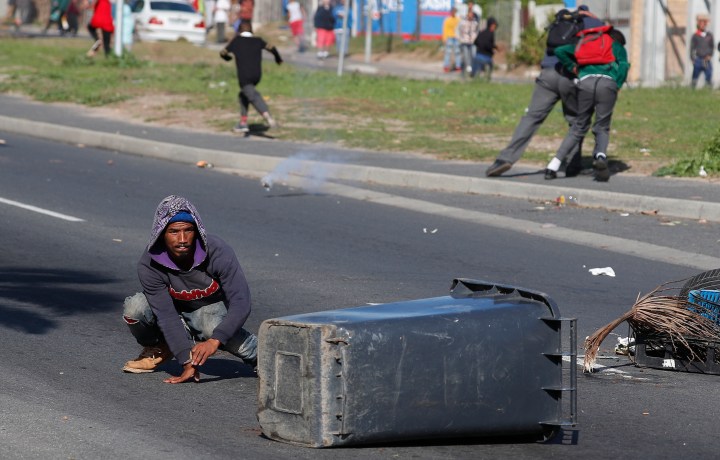LETTER TO THE EDITOR
Land: We all need to act before it is too late

There has never been a riper time for a true economic Codesa than now.
The land debate in South Africa is exposing so much about the country’s departure from being a “Rainbow Nation”. What was once Nelson Mandela’s dream is now a living nightmare for the country. The current land discourse that is permeating all fabrics of society – from Parliament, to church sermons – has awoken even the snakes that have been in hibernation for the last decade. Land has become the kitchen table conversation in so many South African homes.
Imperative questions of which land will be expropriated and who the beneficiaries of that land will be remain unanswered. The idea of land ownership represents different things for different groups in the country. For white South Africans, since colonialism and systematically entrenched during Apartheid, it has and remains an instrument of power and a means of wealth creation. For black South Africans the idea of land ownership went from representing prosperity to now representing access, inclusion, and so much more.
In a country with a GINI coefficient of about 0.65, one easily understands the current euphoria over land expropriation, especially land expropriation without compensation.
However, the over simplification of the land discourse starting with our politicians has led to current land grabs. Such incidents will continue if South Africans, more so those with positions of influence, continue to use the issue to exploit vulnerable people’s emotions as oppose to using this window of opportunity to have honest conversations about the issues at hand. The first being; post 1994, while economic opportunities opened for black South Africans 55% of the population never realised economic freedom. Of the 45% of the population enjoying economic freedom, white South Africans remain the majority owners of the economy and the factors of production. The second conversation is how White-owned businesses have continued to circumvent laws that are meant to transform the economy and move it towards an equal and shared economy by all who live in the country. One such law that is notoriously mis-implemented is BEE and now BBBEE.
In its simplest terms, BBBEE allow qualified black professionals to progress up the ranks and actually manage and have a binding voice in the organisation. The law also says open up markets through supply chains and procurement by doing business not only with “the Old Boys Club” but with black-owned firms.
I will not even begin to go into how white organisations have made a mockery of the law aided by our weak government institutions that have failed to enforce it. The consequence is a society of angry, disgruntled and simply indifferent black South Africans. These are all the right ingredients that can spark and ignite a civil war.
That said, South Africa also has the right ingredients to handle the land discourse appropriately. It begins with including pertinent conversations to the land issue such as transformation, access, income equality not as footnotes in the discourse but as paragraphs each deserving proper thought as to how land without compensation will ensure we achieve them. It also involves bringing the 55% of the population on board this time around and making sure they understand the land discourse, the system within which we are operating under and its limitations and not using it for political gain and garnering votes for the upcoming elections. These links are missing immensely in the debates about land and require not only to be unpacked for those currently driving the land issue but more so for the disillusioned masses.
And to those white people who still remain oblivious to the ills of our country, there is a need to not act out of fear but to truly realise our country is going nowhere unless we have honest conversations about how we open up South Africa’s economy to all.
There has never been a riper time for a true economic Codesa than now. If we miss it again I fear we may not be lucky to still talk and write about it when the third wave comes. And come it shall. DM
Nomahlubi Jakuja is an author and director of a start-up focusing on social franchising and holds a Masters degree in Public Policy with a degree in Economics from the University of Cape Town.


















 Become an Insider
Become an Insider